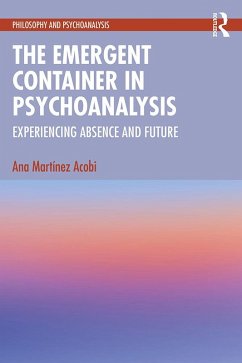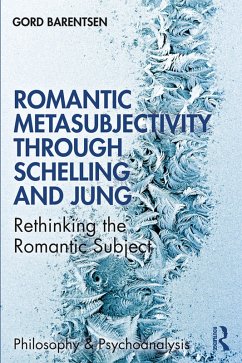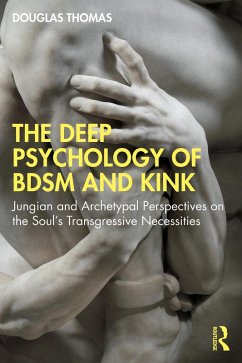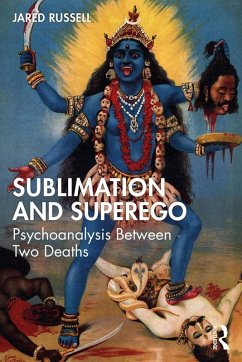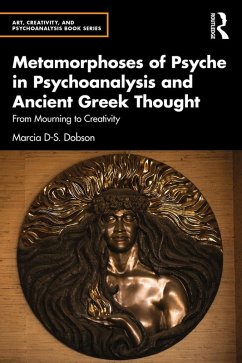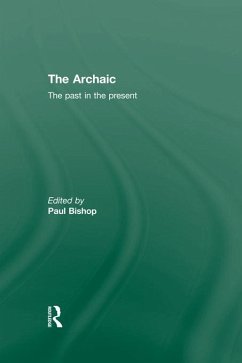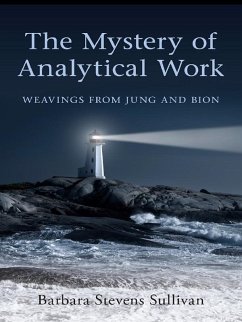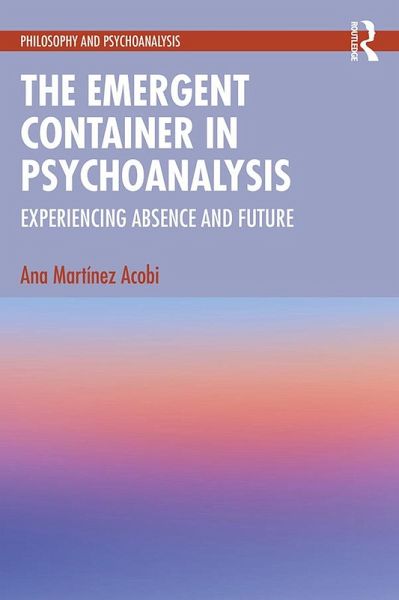
The Emergent Container in Psychoanalysis (eBook, ePUB)
Experiencing Absence and Future
Versandkostenfrei!
Sofort per Download lieferbar
31,95 €
inkl. MwSt.
Weitere Ausgaben:

PAYBACK Punkte
16 °P sammeln!
Drawing largely from the psychoanalytic ground of Jung, Bion and Winnicott, from Plato and Whitehead and from numerous clinical studies, this book explores 'Absence' and 'Future' in the context of their many emotional and conceptual meanings.Bringing together absence and future with Plato's concept of the 'receptacle' as described in the Timaeus and with Whitehead's handling of it, the author examines containment in psychoanalytic process. Here Jung's concept of 'container' (Tavistock Lectures, 1935) is in an ancient and continuing tradition of process thinking. The term 'emergent container' h...
Drawing largely from the psychoanalytic ground of Jung, Bion and Winnicott, from Plato and Whitehead and from numerous clinical studies, this book explores 'Absence' and 'Future' in the context of their many emotional and conceptual meanings.
Bringing together absence and future with Plato's concept of the 'receptacle' as described in the Timaeus and with Whitehead's handling of it, the author examines containment in psychoanalytic process. Here Jung's concept of 'container' (Tavistock Lectures, 1935) is in an ancient and continuing tradition of process thinking. The term 'emergent container' has been coined as the metaphorical and metaphysical space where the interplay between potentiality and actuality meet in the process of emergent reality. As absence emerges, experience consciousness develops, as well as the potential for symbolic thinking. In this sense, the experience of absence is considered as a potential container for and of creativity. If absence does not emerge as experience, there often follows the compulsion to fill emptiness with hallucination. Absence as it plays into the experience of containment is a key factor in the developmental and psychoanalytic process.
The Emergent Container in Psychoanalysis offers an exciting prospect for further research by psychotherapists and philosophers interested in the field of contemporary psychoanalytic thinking within and beyond their discipline. The book is also of great value to the inquisitive reader open to an exploration of human nature not confined to a single body of knowledge.
Bringing together absence and future with Plato's concept of the 'receptacle' as described in the Timaeus and with Whitehead's handling of it, the author examines containment in psychoanalytic process. Here Jung's concept of 'container' (Tavistock Lectures, 1935) is in an ancient and continuing tradition of process thinking. The term 'emergent container' has been coined as the metaphorical and metaphysical space where the interplay between potentiality and actuality meet in the process of emergent reality. As absence emerges, experience consciousness develops, as well as the potential for symbolic thinking. In this sense, the experience of absence is considered as a potential container for and of creativity. If absence does not emerge as experience, there often follows the compulsion to fill emptiness with hallucination. Absence as it plays into the experience of containment is a key factor in the developmental and psychoanalytic process.
The Emergent Container in Psychoanalysis offers an exciting prospect for further research by psychotherapists and philosophers interested in the field of contemporary psychoanalytic thinking within and beyond their discipline. The book is also of great value to the inquisitive reader open to an exploration of human nature not confined to a single body of knowledge.
Dieser Download kann aus rechtlichen Gründen nur mit Rechnungsadresse in A, B, BG, CY, CZ, D, DK, EW, E, FIN, F, GR, HR, H, IRL, I, LT, L, LR, M, NL, PL, P, R, S, SLO, SK ausgeliefert werden.




